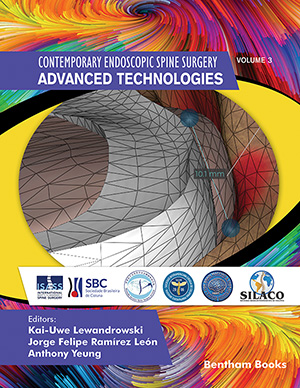Abstract
Extramedullary benign tumors of the spine may cause spinal cord
compression. Patients may present with motor weakness and sensory loss in the
extremities causing gait abnormalities. Surgical treatment is indicated when symptoms
are no longer manageable. In this chapter, the authors present an 87-year-old female's
case as an illustrative example of how the spinal endoscopy platform can be safely and
effectively deployed in the treatment of such lesions. The example patient suffered
from spinal cord compression from a large meningioma at the T7 level. The tumor was
successfully removed via an endoscopic working cannula. The patient's symptoms
improved, and a nine-month follow-up MRI scan showed adequate and maintained
spinal cord decompression. This case example demonstrates that spinal endoscopy may
be applied to an increasing number of surgical indications beyond the scope of
degenerative disease. Further clinical investigation will need to show this technology's
limits when treating benign tumors of the spine.
Keywords: Endoscopic decompression, Extramedullary benign tumors, Spinal cord compression.






















